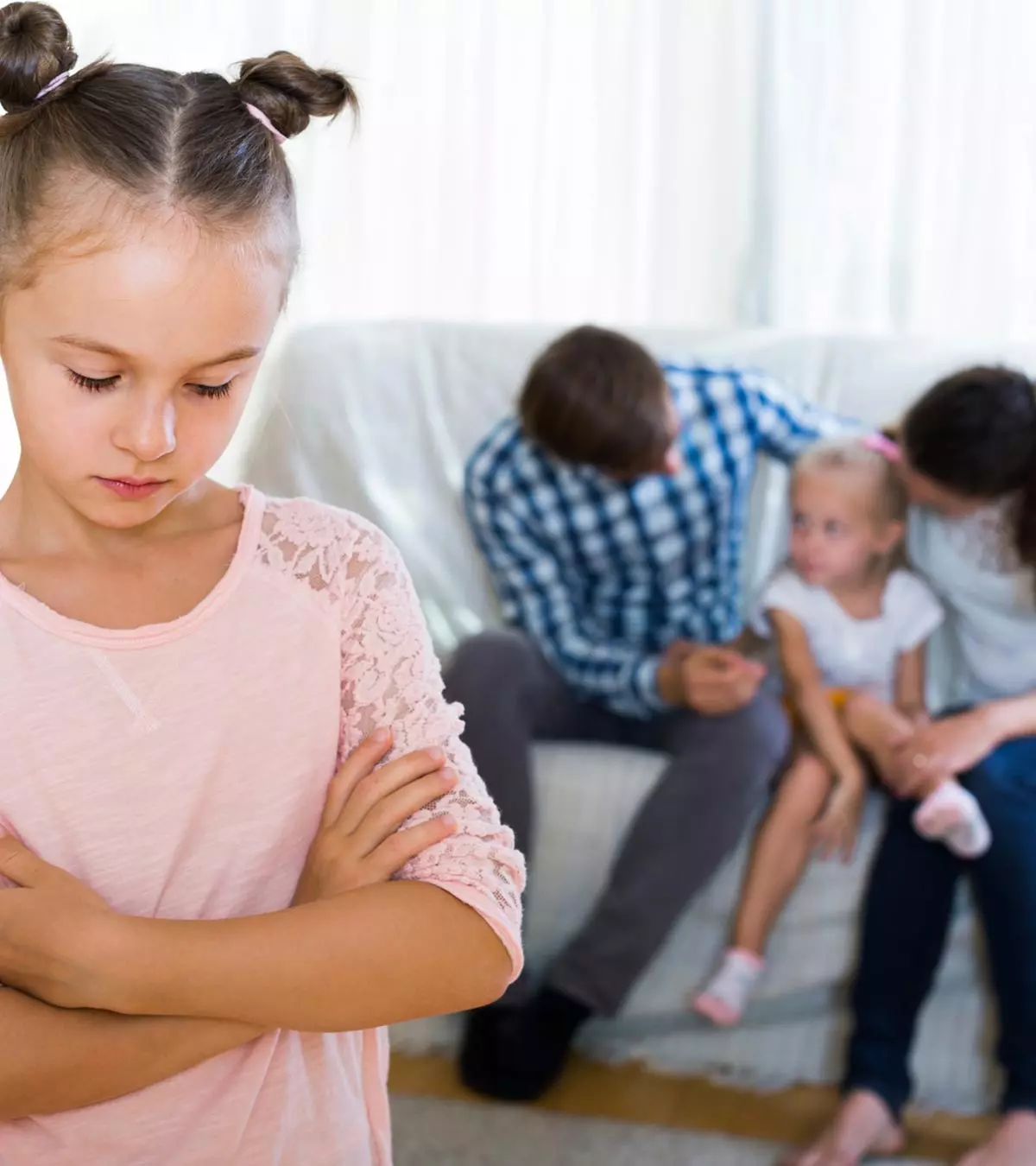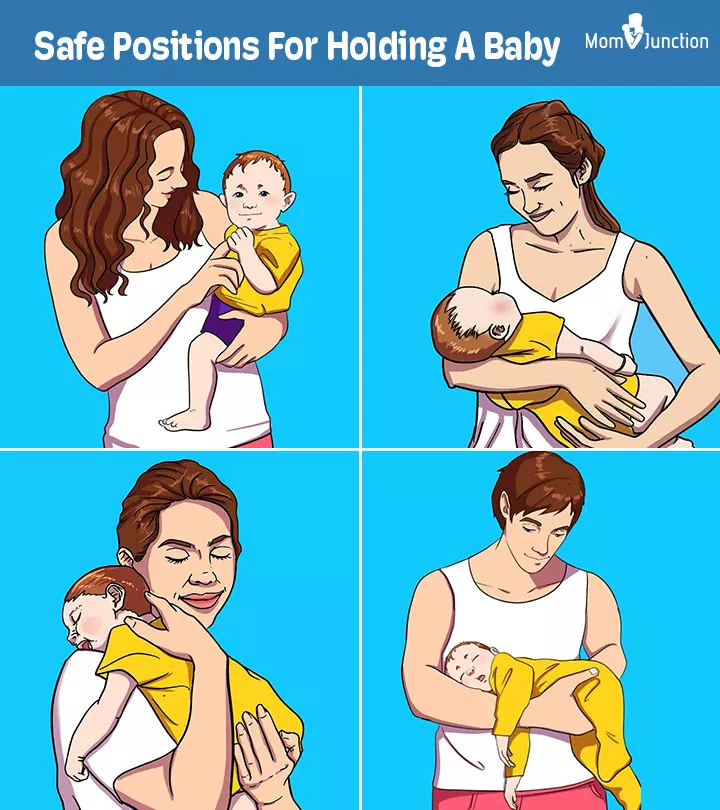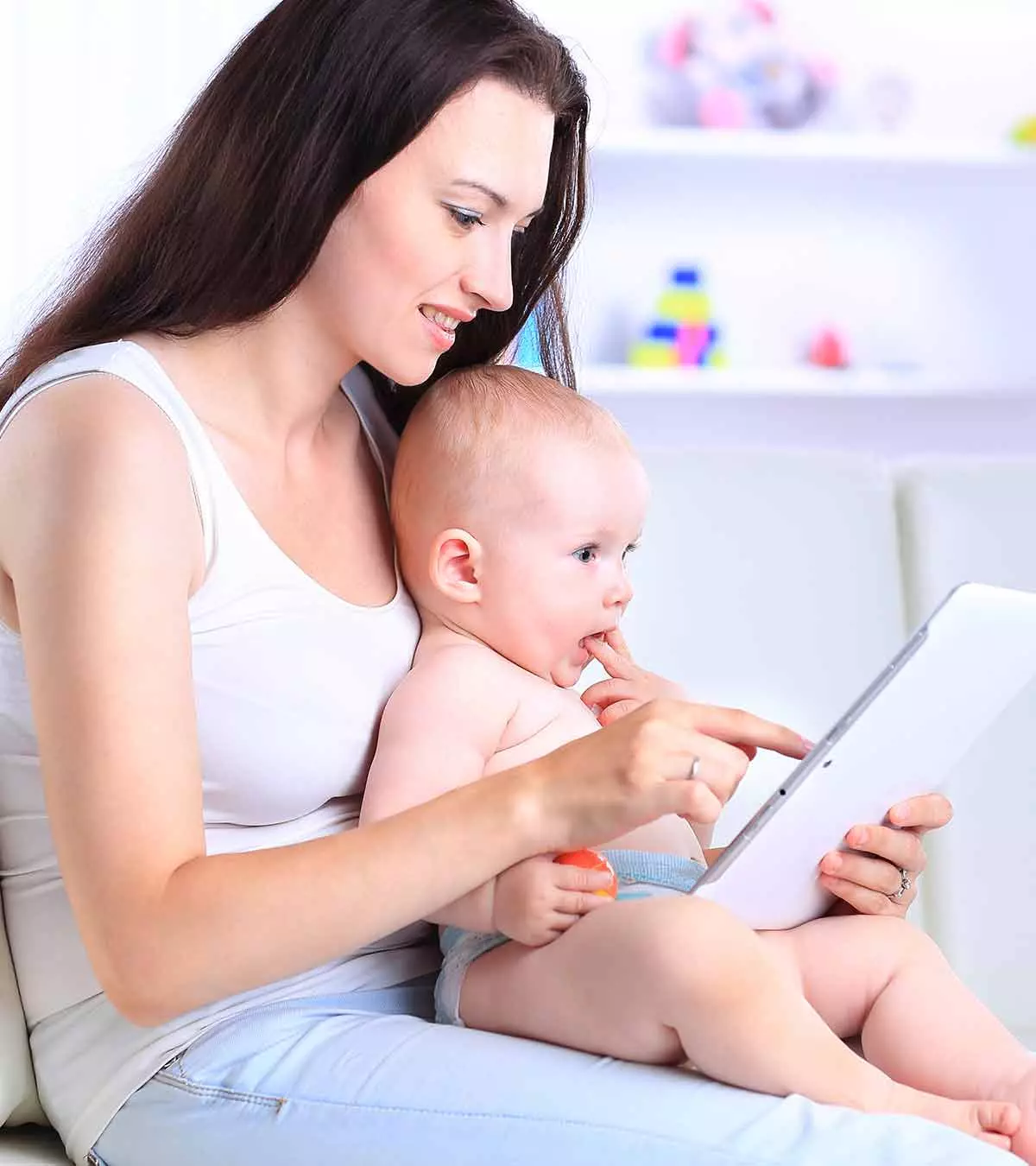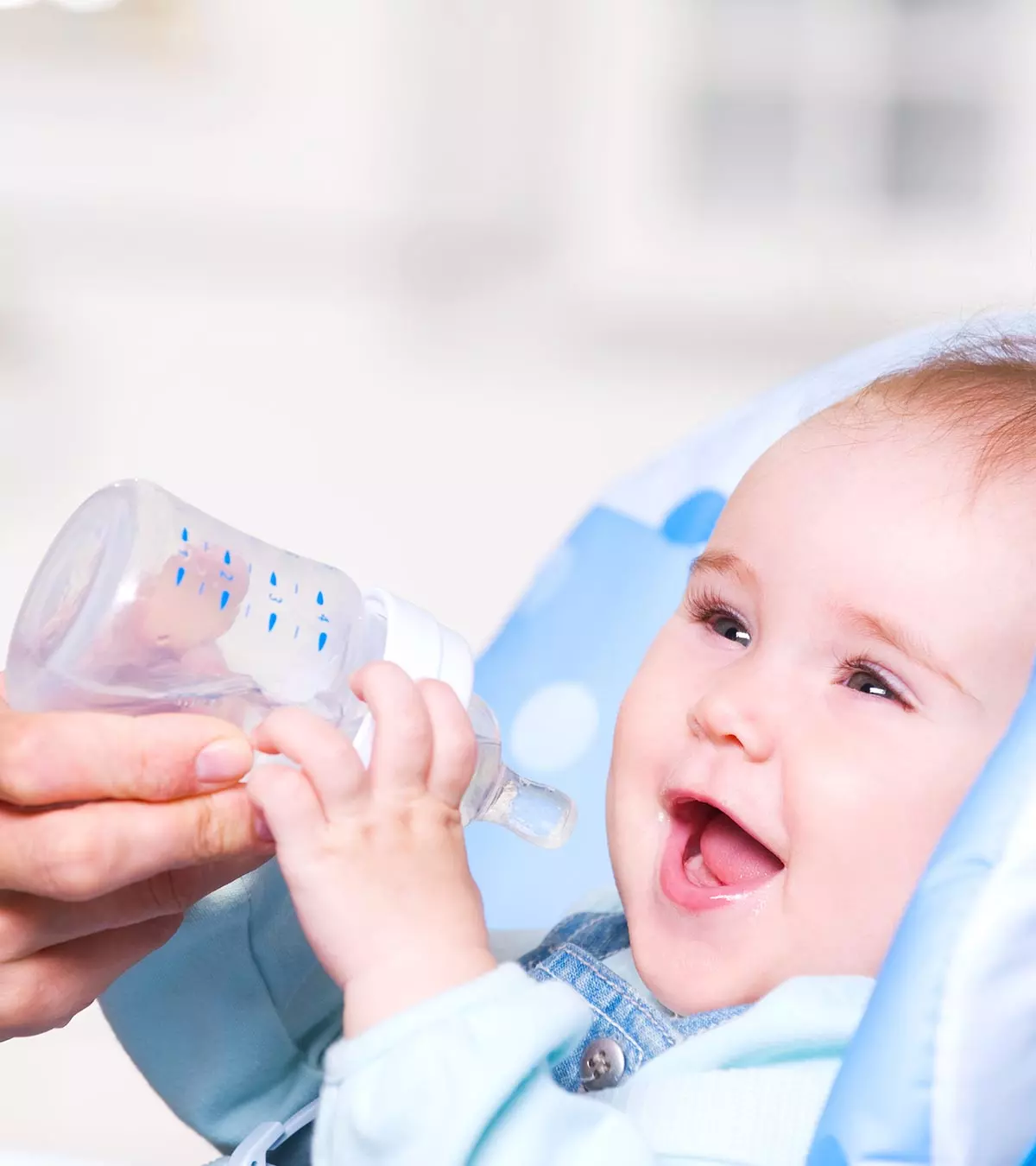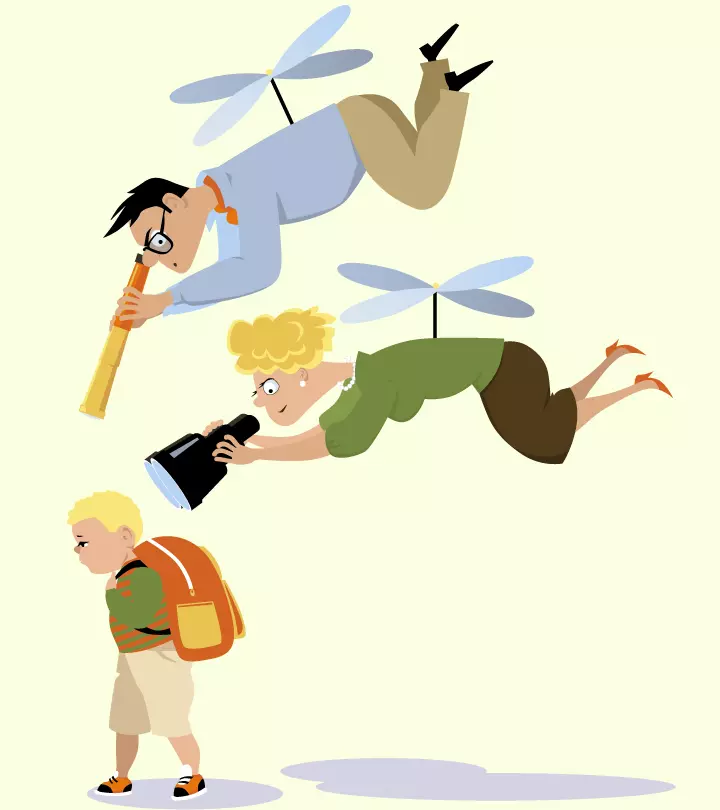
Image: ShutterStock
Helicopter parenting is a type of parenting in which the child’s parents are overly invested in their child’s lives to protect them from harm, disappointment, and success. This parenting style is characterized by excessive involvement in a child’s life. Parents prioritize protection over independence, often knowingly or unknowingly, suppressing their child’s emotional and psychological growth. You may be all-invested in your child’s life and follow them everywhere. You may do their homework, decide their friends, and micromanage everything in their life. But are you helping them, or are you making it difficult for them to adjust to the world by themselves. This parenting style may make things difficult for the child as they grow older and face life’s challenges alone. Read on to learn more about helicopter parenting, its benefits, disadvantages, and ways in which it affects your child’s development.
Key Pointers
- Helicopter parenting involves excessive involvement in a child’s life, including solving their problems, shielding them from failure, and not allowing age-appropriate choices.
- The term is often applied to parents of college or high school students who interfere and help their children more than what is necessary.
- Reasons why parents develop helicopter parenting include fear of terrible outcomes, anxiety about the world, overcompensation, and influence of other parents.
- Helicopter parenting may result in a lack of self-esteem, lack of coping skills, stress, unhappiness, and struggle in chi
What Is Helicopter Parenting?
This term may often be applied to parents of college or high school students who interfere and help their children more than what is necessary. They feel that they are nurturing and supportive but this may not always be the case. It can be calling a lecturer to talk about poor performance, managing exercise habits, or deciding on the child’s hobbies.
The phrase ‘helicopter parent’ first appeared in 1969 in the book Between Parent & Teenager by Dr. Haim Ginott (1). The term entered the dictionary in 2011. It is also known by the terms cosseting parent, lawnmower parent or bulldoze parent (2).
Psychologist Ann Dunnewold calls it over parenting, which means over controlling, over protecting and over perfecting a child’s life.
Who Is A Helicopter Parent?

A study published in the Journal of Family Medicine and Primary Care found that 83% of parents exhibited helicopter parenting, with single-child parents showing this behavior more frequently. Parents of only children tend to be more protective, as the child becomes the family’s primary focus (3). This term may often be applied to parents of college or high school students who interfere and help their children more than what is necessary. It can be calling a lecturer to talk about poor performance, managing exercise habits or deciding on the child’s hobbies.
Helicopter parenting applies to any age. During toddlerhood, the parent steers the child’s behavior and does not give the kid a chance to learn through her experiences.
In elementary school, the parent selects the child’s coach, her friends, and activities.
Does it ring a bell? If you want to make sure you are not a helicopter parent, analyze your parenting style and check for some signs.
8 Warning Signs You Might Be A Helicopter Parent
If you are nodding to most of these practices, then you might want to move away from your helicopter parenting style.
- You negotiate for your child’s conflicts: Constantly stepping in to resolve your child’s conflicts and not letting them handle disputes independently is a common sign of helicopter parenting. It can prevent them from developing problem-solving skills, emotional resilience, and confidence to navigate social challenges.
- You do their academic work: If you frequently complete your child’s homework or school projects, it may indicate helicopter parenting. By doing this you hamper their ability to develop problem-solving skills, independence, and responsibility and cause long-term dependency and reduced confidence.
- You train your child’s trainers: Constantly instructing teachers, coaches, or mentors on how to handle your child’s needs can signal helicopter parenting. Instead of allowing professionals to guide development, you micromanage their approach. This can limit your child’s ability to adapt, learn resilience, and navigate challenges independently.
- You follow your kid around: Constantly accompanying your child, even for short distances, signals overprotection. This can limit their independence, create anxiety, and make them hesitant to navigate simple situations alone.
- You hold the responsibility for all your child’s house chores: Taking full responsibility for your child’s household chores signals helicopter parenting. It can limit their ability to develop independence and life skills.
- You shield them from failure and aim to make them a perfectionist: Protecting children from failure prevents them from developing resilience and problem-solving skills. Excessive control sets unrealistic expectations and can make them fear mistakes and struggle with self-confidence.
- You don’t allow them to tackle their problems: Stepping in too quickly to resolve their issues denies them the opportunity to navigate difficulties, build confidence, and learn essential coping mechanisms.
- You don’t allow them to make age-appropriate choices: Interfering in their everyday activities and choices, from clothing to hobbies, limits their confidence and problem-solving abilities. It can also prevent children from developing decision-making skills and independence.
Why Do Parents Hover?

You may be following the helicopter style knowingly or unknowingly out of sheer love and concern for your child. Subconsciously, you might be having more than one reason for doing so. Here are four reasons why controlling parents develop helicopter parenting:
1. Fear of terrible outcomes
You worry about your child’s possible failures. You believe that your involvement and being overbearing can help your child avoid a low grade in school or disappointment in life. However, when the parent directs the child’s behavior and does not give any alone time, it could lead to low self-esteem, stress, lack of coping skills, unhappiness, and struggle in children. Also, you might turn to become authoritarian with time.
2. Anxiety about the world
Your anxiety about the economy and the world in general can make you take over control of the child in an attempt to overprotect them.
According to Dr. Daitch, “Worry can drive parents to take control of their children to keep them from being disappointed or hurt” (4).
3. Overcompensation
Parents who were neglected, ignored, and unloved or whose parents were not attentive during their childhood try to be over-careful and domineering. They pay excessive attention and monitoring to make sure that their children do not feel the way they did in their childhood.
4. Influence of other parents
Parents might sometimes get influenced by other micromanaging and smothering parents. According to Dr. Daitch, when we observe others overparenting, it pressurizes us to be like them. It also makes us feel that we are bad parents. Guilt is, of course, a large component working.
5. Influence of social media
Constant exposure to curated social media content fuels parents’ desire to over-involve themselves in their children’s lives and strive to meet unrealistic standards. Parents may feel compelled to micromanage, seeking validation through likes and comments. While the intent is to support their children, this behavior can affect a child’s independence and privacy.
 Point to consider
Point to considerWhat Are The Effects Of Overprotective Parenting?

Helicopter parents start being overprotective with a genuine intention. But in the process of engaging with kids and their lives, they lose the actual perspective of what they want. Though this parenting has some advantages for the child like building self-confidence, increased emotions of love and acceptance and opportunities to excel, it has got its downsides:
1. Low self-esteem and confidence
Helicopter parenting backfires. Over-involvement and coddling makes the child believe that their parents will not trust them if they do something independently. The child loses trust in themselves as the parents do not trust them. It, therefore, leads to a lack of self-esteem and confidence.
E.A. Wickham, a mom blogger and a former helicopter mom, shares how her overprotectiveness affected her firstborn’s personality. She says, “My two kids are so different, I question if I parented them differently. I feel like I helicoptered my firstborn and was more laid back with the second. The result is one more dependent and one independent… I have one child that now calls whenever there is a problem. His face pops up on my phone, and I automatically ask, ‘What’s wrong?’ A broken computer, a fender bender, a parking ticket. It’s always something (i).”
2. Immature coping skills
When the parent is always there to prevent the problem at first sight or clean up the mess, the child can never learn through failure, disappointment or loss. Studies also reveal that hover parents can make their kids less competent in dealing with tensions and pressures of life.
3. Overanxious
Studies suggest that helicopter parenting increases the risk of anxiety and depression in children by hindering their emotional development (5). They can adapt to similar anxiety from the parent if the parents are anxious. For example, if the parent is anxious about the child walking down the street alone, the latter might develop the same fear and get intrusive thoughts.
 Do remember
Do remember4. Sense of entitlement
When parents get involved in their child’s academic, social and athletic lives, children get accustomed to always having their parents to fulfill their needs. This makes them demanding as they feel that it is their right to have what they want.
5. Underdeveloped life skills
Children refuse to learn basic life skills such as packing lunches, tying shoe lace, cleaning the mess, laundering clothes and cooking a meal. They won’t develop good coping skills either. Sometimes, by failing in life/experiencing adversities, children naturally learn coping skills on their own. If the parents consistently attempt to protect children from adverse life experiences, they won’t have the opportunity to develop coping skills for when they become adults, or when the parents aren’t there to protect them from pain/hurt.
6. Low self advocacy skills
Helicopter parenting significantly impacts a child’s ability to develop self-advocacy skills. This parenting approach often leads to micromanaging every aspect of a child’s life, from schoolwork to social interactions. As a result, children may struggle to develop independence and problem-solving skills, essential components of self-advocacy. They become reliant on their parents to navigate challenges. They may also find it difficult to make decisions and may always reach out to their parents for advice. This may hinder their capacity to understand and articulate their needs and interests. Consequently, these children may need help in environments like school or the workplace, where self-advocacy is crucial.
7. Decreased academic performance
Helicopter parenting negatively impacts academic success. A study found that college students with overinvolved mothers showed lower academic motivation and a higher sense of entitlement, leading to decreased academic performance and long-term learning struggles. When parents overly control schoolwork, children may expect rewards without effort. This entitlement can hinder learning and negatively impact long-term academic performance (6).
How To Avoid Helicopter Parenting?

Make a conscious effort to avoid or stop practising certain things. This will go a long way in bringing up an independent child:
1. Stop hovering over your child
Do not make a habit of dressing your child or tying their shoes when they can do it by themselves. Avoid holding them back from doing things that suit their age. It is not a good idea to get too involved in the child’s activities, like answering questions on her behalf or talking to teachers incessantly about your child’s performance.
If she is not able to make decisions, try not to bounce over her. Instead, give time and let her reason for herself. Let her feel the pain and discomfort as it is a part of the child’s growing up.
2. Do not take your worries over your child
Do not focus on how your child throughout the day and imagine the worst consequences. Let go of all those negative thoughts such as: “What would she become when she grows up?” “Is her shyness because of lack of confidence?” Also, avoid interrogating her when you are anxious by asking: “Are you fine?” “Is it looking awkward?” “Are you sure?” “Can you handle it?”
Do not search for evidence to confirm your worries about your kid.
3. Refrain from obliging
Do not be very emotional with your child. If you are too obliging to her, she will take undue advantage of it.
4. Stop labeling your child
Be it positive or negative, do not label your child. Do not keep telling her that she is the “funny one” or “pretty one” or “lazy one” or “the one who turns out to be just like dad”. Also avoid saying them, “You always…” or “You never…”. Words have power, therefore do not make any negative assumptions about your child’s behavior.
5. Do not get offended if your child chooses a different path
If you try getting into your child’s head, she will not be able to perceive her dreams and thoughts. If you feel she is thinking differently from you, do not argue about it. Instead, give her a chance to explore. Do not stop her when she gives her opinions that are far different from what you have. Realize that your child is not a version of yourself but they are their own person with their own goals, feelings, thoughts, values, hopes and dreams.
6. Don’t shift your entire focus on the child and forget your hardships
This can be tough for the parents. Do not get so engrossed in your child’s life that you neglect your life. Do not worry about her so much that you stop thinking about your work, interests and relationships.
If you are still wavering about your need to change, then we bring you some effal data to support our argument.
Did You Know?
- According to the University of Michigan Health C.S. Mott Children’s Hospital National Poll on Children’s Health report, while a majority of parents (especially of kids aged 9–11) agree on the importance of unsupervised free time, only a few actually allow their children to engage in independent activities like walking to a friend’s house, playing at the park, or even trick-or-treating without adult supervision (7).
- The report states that parents of younger children (ages 5–8) often claim they encourage independence, but less than half report that their child regularly performs independent actions—like talking to healthcare providers, managing money, or ordering food at a restaurant. This inconsistency shows how helicopter parenting can subtly limit children’s growth by doing tasks for them, even when parents intend otherwise (7).
- Helicopter parenting is associated with over engagement in risky behaviors such as smoking and drinking (8).
Real-Life Examples Of Helicopter Parenting
Picked from a Reddit thread, here are some real-life examples which will help you understand what overprotective parenting is all about.
1. A psychopathic mom who did not give space to her daughter.
There was a 14-year-old girl who took a long time to finish her bath. Her mother stood outside the door for so long and finally yells, “What is taking you too long, did you wrap the toilet paper as I have shown you, or you want me to come and show you again? Why have you locked the door? Open it!”
Not surprisingly, the entire family who was having a Thanksgiving dinner, stared at the mother in shock. They could hear the girl cry in the bathroom.
2. Mother fills out the application.
Mom filled out an application for the daughter to go to her alma mater. She also writes a personal statement along with an essay to receive the acceptance letter.
3. A mom who brings lunch for her kid.
There was an Italian family. The mother would go to the school every day to give him pasta for lunch. She would even make him sit along with her and not leave until he finishes the food.
4. The parents who shielded their son from every petty thing.
There was this guy who could not hang out with his friends past seven o’ clock. His parents would not allow him to use a phone. He is afraid of talking to others. They also refuse to allow him to drive.
5. Communication through a walkie-talkie.
A mother gives her eight-year-old son a walkie-talkie when he goes to his friend’s house for play. The mother then sits in the front portico and checks in now and then.
6. Parents guilt trip their son for not calling them over the phone.
A 32-year-old calls his parents every day and describes all about his day. One day, he could not call his parents because of network issues, and when he called them the next day, they guilt trip him saying how irresponsible he was.
There is no doubt that you would want the best for your child. But you cannot adopt an authoritative parenting style or become so obsessive that you take over the life-steering from her hands. Be there for your child, she needs your help. But do not be her shadow, she would not want that. Allow your kids to face consequences, make their mistakes and solve their problems.
Frequently Asked Questions
1. Are helicopter parents toxic?
Yes, helicopter parenting has a negative impact on children’s lives that outweighs its positive impact. As the child with helicopter parents grows into an adult, they could have psychological distress, narcissism, poor adjustment, and alcohol and drug use, among other behavioral issues (9).
2. What is worse than a helicopter mom?
A lawnmower parenting style is worse than helicopter parenting. The focus of lawnmower parents is always on keeping their kids happy, which interferes with their lives even after becoming adults. These parents are a step ahead as they are motivated to remove any potential obstacle that comes their child’s way (10).
3. How do high schools deal with helicopter parents?
The school staff, particularly teachers, must understand that most helicopter parents have good intentions and hover because they are concerned for their children. So, listen to their concerns, reassure them, and keep in contact; because these parents want to be involved in their children’s education, provide them with opportunities, and collaborate with them to find practical solutions for their anxiety (11).
4. Can helicopter parenting affect the social development of kids?
Yes. Since helicopter parents do not allow their children to face challenges and problems on their own, these children lack the experiences and practice needed to develop skills necessary for social interactions as adults and success in careers (12).
The helicopter parenting style and their strict and disciplinarian nature may result in low self-esteem, low confidence, and increased anxiety levels among children. If your parenting style is leaning towards helicopter parenting, you may try to work on showing an appropriate amount of care for your child. Although it is a challenging task, it is beneficial for your child in the long run. Start to retract from their lives by helping them make a few minor decisions. Eventually, you may start to leave the big decisions to them. If letting them take control of their lives is more challenging than you anticipated, do not hesitate to seek the help of a professional.
Infographic: How Is Helicopter Parenting Different From Free-Range Parenting?
Helicopter parenting involves control to the extent that it adversely affects children. Let’s check out the differences between helicopter and free-range parenting. The latter is a new parenting style that is a win-win for parents and children. Illustration: Momjunction Design Team
Illustration: Vitals Signs Of Helicopter Parenting And Its Effects

Image: Stable Diffusion/MomJunction Design Team
Are helicopter parents ruining a generation? Find out in this video as we explore the effects of over-parenting on today’s youth.
Personal Experience: Source
MomJunction articles include first-hand experiences to provide you with better insights through real-life narratives. Here are the sources of personal accounts referenced in this article.
i. True confessions of a former helicopter mom.https://bleuwater.me/category/helicopter-mom/
References
- Living in contradiction: Helicopter parenting and what it means for educators today
https://www.brookings.edu/articles/living-in-contradiction-helicopter-parenting-and-what-it-means-for-educators-today/ - Are You A Helicopter Parent?
https://healthcare.utah.edu/the-scope/kids-zone/all/2015/11/are-you-helicopter-parent - Omna Shaki et al.; (2026); Helicopter parenting, from good intentions to poor outcomes. What parents needs to know?
https://pmc.ncbi.nlm.nih.gov/articles/PMC9638553/ - What Is Helicopter Parenting?
https://ohanapreschool.edu.vn/what-is-helicopter-parenting - Runzhu Zhang et al.; (2026); Effects of Helicopter Parenting, Tiger Parenting and Inhibitory Control on the Development of Children’s Anxiety and Depressive Symptoms.
https://pubmed.ncbi.nlm.nih.gov/38401004/ - Holly H. Schiffrin et al.; (2017); The Effects of Helicopter Parenting on Academic Motivation.
https://scholar.umw.edu/cgi/viewcontent.cgi?params=/context/psychological_science/article/1006/&path_info=The_Effects_of_Helicopter_Parenting_on_Academic_Motivation_EMBARGO_SchiffrinLiss2017.pdf - Promoting children’s independence: What parents say vs do
https://mottpoll.org/reports/promoting-childrens-independence-what-parents-say-vs-do - Jessica Pistella et al.; Helicopter parenting and alcohol use in adolescence: A quadratic relation.
https://pmc.ncbi.nlm.nih.gov/articles/PMC9189564/ - Perfectionists May be More Prone to Helicopter Parenting Study Finds.
https://news.arizona.edu/news/perfectionists-may-be-more-prone-helicopter-parenting-study-finds - These modern parenting styles can harm your children – but there’s a solution.
https://www.weforum.org/stories/2017/08/these-modern-parenting-styles-can-harm-your-children-but-theres-a-solution-239e455b-647e-4432-bca3-eb1560135bf0/ - Teacher Tips to Ground Helicopter Parents.
https://www.wgu.edu/blog/education.html - Helicopter parenting negatively influences children.
https://universe.byu.edu/2015/06/30/helicopter-parenting-negatively-influences-children11/
Community Experiences
Join the conversation and become a part of our nurturing community! Share your stories, experiences, and insights to connect with fellow parents.
Read full bio of Aika Marchant
Read full bio of Sagari Gongala
Read full bio of Rebecca Malachi
Read full bio of Apoorva K








